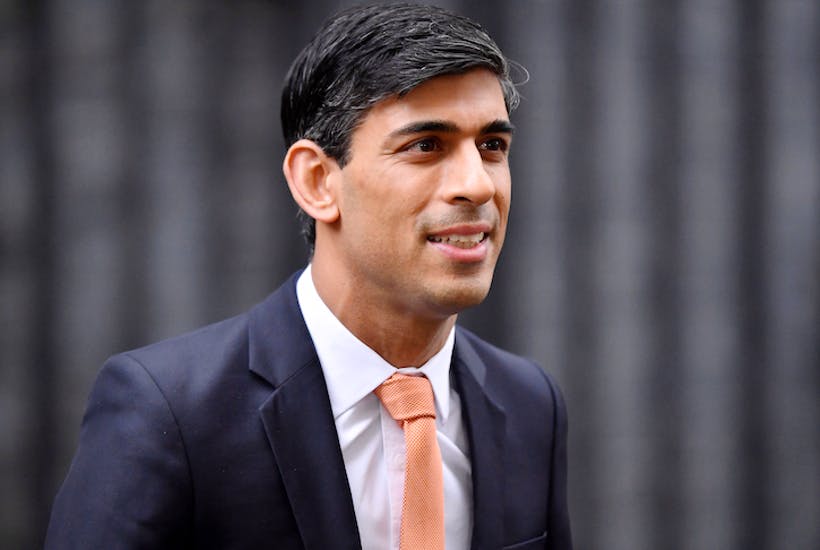Plenty of questions were already circulating about next month’s Budget, even before Sajid Javid’s dramatic resignation as Chancellor – and Rishi Sunak’s appointment as his replacement – this morning. With this shock change in Number 11, we know even less than we did: what are Sunak’s policy plans? How involved will Number 10 be in the process? And will financial plans already in the works be radically altered in the weeks to come? But the most pressing question of all is: what is Boris Johnson’s Government’s economic vision for the years to come?
The process of building an economic legacy can take many twists and turns. When Margaret Thatcher first came to power, she raised taxes. This part of her tenure is rarely mentioned, especially in sympathetic circles; Thatcherism has become a byword for smaller taxes and smaller government. But that’s not how her premiership kicked off and it’s worth revisiting these formative years.
When Thatcher took office, inflation was wildly out of control, reaching over a staggering 25 per cent under the previous Labour government. Getting prices under control was the Conservatives’ first priority – and that meant some drastic financial surgery. Income tax rates were cut, but VAT was raised to a hefty 15 per cent. Then-chancellor Sir Geoffrey Howe justified the tax hike in his 1981 budget, noting that the government was ‘determined’ to defeat inflation, ‘even at the cost of departing, for the time being, from our commitment to lower personal taxes.’ The Thatcherites chose their battles, inflation was first.
And they succeeded. Inflation came down, enabling the economy to nurse itself back to good health. Crucially, their wider aim to reduce the tax burden was never forgotten, even when they were increasing it.
In the 1984 budget, Nigel Lawson made good on the promise of radical tax reform. In his memoirs, he explains how he approached tax changes not as an ‘isolated set of measures’ each budget, but rather as a broader framework which included his objectives: to let people keep more of their own money, to keep things simple and fair, and not to manipulate the tax system to stop people living their lives as they saw fit.
With inflation tamed, the Tories set about revitalising British society, making sure more money stayed in the hands of the people who earned it. The tax take was 37.4 per cent of GDP when Thatcher was first elected and hit a peak of 41 per cent when the monetary medicine was being administered. It then hit a low of 34 per cent (and continued downward, hitting a 31.4 per cent low under John Major).
So what principles and objectives are guiding the Government’s decisions now? Boris Johnson used his brief time in Number 10 before the election, as well as on the campaign trail, to tout the benefits of free markets, lower taxes, entrepreneurship and self-determination.
Yet the decisions taken publicly by his Government so far – backing the HS2 speed line, which has doubled in cost in the last five years alone; using taxpayer money to bail out a regional airline instead of applying pressure to its billionaire backers to do so instead – have racked up costs. These will have to be paid for by increased borrowing, higher taxes, or some spectacular economic growth in the years to come.
It’s no wonder rumours were circulating before the reshuffle that this Budget could include wealth taxes, mansion taxes and plans to further tax pension contributions. Such speculation must be taken with a big pinch of salt, especially now that a new Chancellor has been appointed. But it’s worrying all the same that the rumours are about radical tax increases, not radical tax cuts.
Like inflation in the late 70s, there are plenty of overriding problems this Government could point to that they will need to address: the debt crisis, pension pay-outs, an ageing population and a crippling healthcare service, just to name a few. But with the tax take at its highest in decades, having shot up under a decade of Tory rule, it is far too short-termist to hike taxes further for the sake of one-off spending projects, whether that be a rail line or a struggling company.
If Johnson and Sunak want to brave another tax overhaul, to make the system fairer, fit for purpose, and able to address the serious financial problems we face today, they could find support to do so. But ignoring the tax burden to focus on public spending would only make good on half of the Tories’ pledge to voters in 2019. Promises to roll back state control over people’s daily lives will not be forgotten easily.







Comments